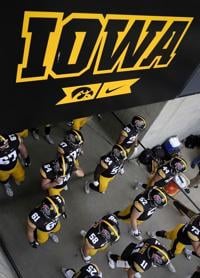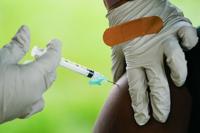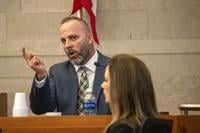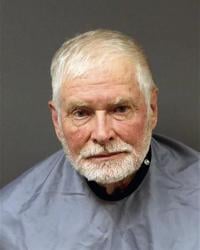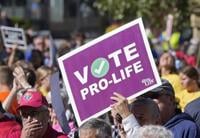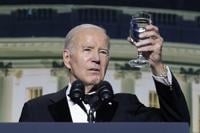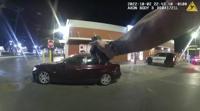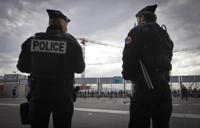A criminal investigator for the state of Iowa suggested to colleagues last year that busting college athletes for online sports betting would impress the public and “the powers that be” and perhaps nudge lawmakers toward updating gambling laws.
“If they get suspended or get a scholarship taken away, so be it,” Division of Criminal Investigation special agent Christopher Adkins wrote in his February 2023 email.
Attorneys for more than two dozen Iowa and Iowa State athletes caught in a 2023 gambling sting obtained Adkins' email and 32 others from the Department of Public Safety through an open records request and released them to The Associated Press on Thursday.
They were among attorneys who against the state and its public safety and criminal investigation agencies for violating the athletes’ rights and damaging their reputations. The lawsuit seeks unspecified damages.
The emails illustrate authorities' motivation for pursuing the cases and using geolocating software that led to the identification of athletes using mobile wagering apps with accounts registered under different names, usually those of relatives. The athletes disguised their identities either because they were underage, they were NCAA athletes or both. Most sports gambling by athletes is against NCAA rules.
The athletes' attorneys contend tracking software data was illegally obtained because there was no search warrant issued.
DPS Commissioner Stephan Bayens, who oversees the DCI, has
Five starters on the Iowa State football team and a number of Iowa football and basketball players were among athletes criminally charged or suspended by the NCAA. Most of the athletes paid fines after entering guilty pleas to underage gambling in exchange for having identity theft charges dismissed.
Attorneys for four Iowa State athletes who did not take plea deals of tracking software and there never was a criminal complaint that would have provided cause for a search. A judge upheld their motion to dismiss all charges in March.
Adkins, in his 2023 email to fellow special agents Troy Nelson and Brian Sanger, wrote that the investigation “would bring attention to our unit, not only in the public’s eyes, but also as far as the commissioner and even possibly the legislatures.”
Sanger, in an email a month earlier, speculated the case could lead to the Iowa Racing and Gaming Commission and the DCI to gain access to all Iowa sports wagering accounts "so we can ensure no college coaches, athletes, officials, athletic trainers, individuals close/inside a college sports program along with statewide barred patrons don’t have Iowa sports wagering accounts.”
Several emails from DCI investigators revealed a belief that state laws needed to be updated to make it illegal for a person to place wagers on another person's behalf. Online sportsbooks' user agreements bar so-called “proxy betting" but typically a complaint must be lodged before the sportsbook investigates.
Several emails outlined concerns that using information from geolocating software could violate the athletes' constitutional rights, particularly the Fourth Amendment, which protects citizens from unreasonable searches and seizures.
IRGC director of operations Tina Eick wrote in September 2022 to special agent Chris Swigart that she assumed a county attorney would be concerned if the geolocation evidence were improperly obtained and that “a defendant might be able to get that evidence thrown out.”
Adkins wrote the investigation would seem like a lot of work, “but on a case like this, where it will be higher profile, we can show our worth to the powers that be along with sending out a warning that we will be overseeing things and hopefully work on slowing down these sorts of things in the future.
"And if we pursue this and it hits the media, which it would, and people start asking why nothing criminal was done — we can use that as a platform to hopefully push legislators for code changes moving forward.”
Adkins reiterated that the investigation should press on: "It might ruffle some feathers, but so be it,” he wrote.
Adkins did not immediately respond to a message left on his cell phone seeking comment.
___
AP college football: and


